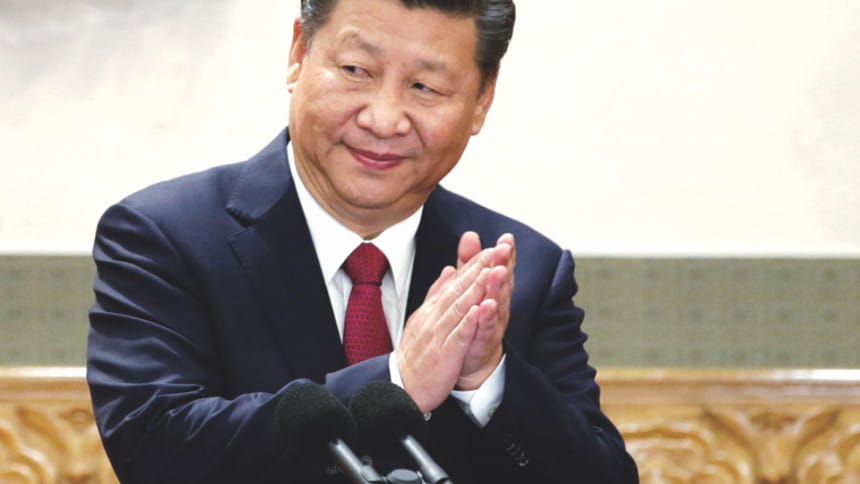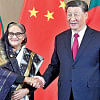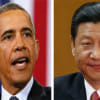Xi Jinping bores party into submission, takes over world

Xi Jinping, the Chinese president, has recently been bandied about by serial exaggerators like The Economist, Foreign Affairs and Foreign Policy as the most powerful man in the world. They're probably not wrong, but it also doesn't hurt to have a headline like that. As a student of Political Science, I greatly enjoy the House of Cards-esque readings of international politics where power is something tangible within big cults of personalities and heads of states are like gods—if only in that gods do not have bureaucratic red tape to deal with. The Cold War was really the heyday of the field, when it could look at a world defined by great powers and larger-than-life figures—the Kennedys, Kruschchevs, Reagans, Gorbachevs, Castros and the like. I often wonder whether like with 80s music, we only remember the cherry-picked highlights. Surely it couldn't have been that exciting day-to-day. If it was, the world would be full of jittery paranoiacs and the nerdiest brand of adrenaline junkies—oh wait, it is.
If we believe The Economist and Foreign Affairs magazine, we are seeing a return to those big-figure manifestations of heads of states, shadily jostling for power in the underbelly of international politics. Vladimir Putin was just declared a new Tsar in this month's Economist following their proclamation of Xi as the most powerful man on earth. Donald Trump is a great, big man-child, but great and big nonetheless, much like the nuclear threat and waist size of Kim Jong-un. We're seeing a typically 2017 version of a Cold War power struggle unfold in the international arena, one in which decisions can be made in 140 characters or less and the masses engage in political mobilisation not through protest but through the post-modernist masochism of their memes. It is thus only fitting that at the 19th Congress of the Chinese Communist Party (CCP) last week, Xi Jinping etched his name into history among the greatest of Chinese leaders by boring the largesse of the CCP into submission through a speech that lasted a record breaking 19 days. That's two weeks longer than the actual congress!
No, I'm joking. It was actually the size of the last Lord of the Rings movie, so pretty close to 19 days. His speech was extensive. He covered every topic he possibly could—culture economics, environment, the new My Little Pony movie, cheese, and whether parts of Queens, New York are actually gateways to some sort of desolate, filthy hell, which even the devil has abandoned. He probably talked about more, but no one could keep up with a speech close to four hours. In fact, had that speech been in a public setting, Amnesty International would have been bemoaning it as the latest infringement in their less-than-perfect human rights record. Some would call his speech a manifesto. He has managed to instil his ideology, the boringly named "Xi Jinping Thought" into the party constitution, effectively placing him on a pedestal of importance close to Mao himself, although he hasn't yet printed it out onto books and forced everyone to carry it out. Under Mao, the punishment for failure to carry The Little Red Book was execution and labelling as petty bourgeois elite, even if one were a homeless illiterate. That being said, however, this week Xi is meeting with Apple and Facebook CEOs Tim Cook and Mark Zuckerburg so that the Chinese may yet find copies of the "Xi Jinping Thought" popping into their phones forcibly, just like that U2 album a couple of years ago. It was as if Bono himself had broken into my home and relieved himself into my ear while I slept.
The actual idea—"Socialism with Chinese characteristics for a new era"—is not new and the new era described has been around for a few eras. Deng Xiaoping said similar things when he began market reforms to stave off the implosion of the Cultural Revolution. But the difference is that China is now on the verge of becoming THE superpower. Economically they are surging, militarily they are exerting power in key areas, and politically they have positioned themselves as a reliable and "impartial" partner to countries that can no longer rely on a volatile United States. There was also a creepy propaganda video where students sing an ode to "Xi Dada" or "Uncle Xi". This all adds up to what Xi calls the "Chinese Dream" and one assumes it is a little better than the previous Chinese dream, which was to run a filthy takeout joint in some small town in Rhode Island and bastardise their food and the good name of General Tso. The Chinese Dream is imperative, not only for Xi, but also for the sake of The Economist.
Bareesh Hasan Chowdhury is a recent Political Science graduate.










Comments